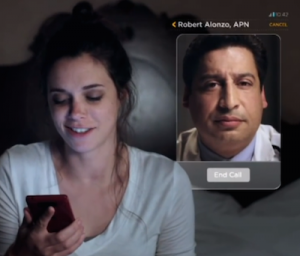 The Center for Medicaid and Medicare Services (CMS) has released an unpublished proposed rule that will soon lead to changes in coverage under Medicare Part B. Notably, the proposed rule will expand the range of telehealth services that can be reimbursed under Medicare.
The Center for Medicaid and Medicare Services (CMS) has released an unpublished proposed rule that will soon lead to changes in coverage under Medicare Part B. Notably, the proposed rule will expand the range of telehealth services that can be reimbursed under Medicare.
Since 2002, CMS has acknowledged that the range of use cases for telemedicine is always changing, and has provided a mechanism for the public to request coverage for additional services. When CMS publishes its lengthy rule change documents (this one is 600 pages), it provides both a list of additions it will be making, and a list of proposed additions it will not be making with explanations as to why. New coverages have to fit into one of two categories: either they are sufficiently similar to an existing covered use case (category 1), or they are novel but the requester provides evidence that offering the service via telehealth confers a clinical benefit (category 2).
As we've noted before, the process is not a quick one. The current document contains requests that were submitted in 2013 and will go into effect in 2015. Anything submitted now, would go into effect in 2016 at the earliest.
In the new rule, CMS proposes to add seven new telehealth reimbursement codes, all category 1, that fit into three general areas. In the area of mental healthcare, CMS has added codes for psychoanalysis and family psychotherapy (which has two codes, one for family therapy with the patient present and one for family therapy with the patient absent). The next two codes are ones that therapists use to report sessions that go overtime or require additional time over the scheduled hour-long visit -- these will now be eligible for reimbursement via telehealth.
Finally, outside the area of mental healthcare, CMS will add telemedicine codes for an "annual wellness visit" including a personalized prevention plan of service -- one code for the initial visit and another for subsequent visits.
The restrictions on telehealth coverage of CMS still apply, of course. To be reimbursed, CMS requires telehealth to include two-way audio and video communication, making therapy over the phone still ineligible for reimbursement. And for many services, an initial face-to-face visit is still required.
Requests denied by CMS this time around include a number of applications of new or recently developed mobile health tools. CMS still won't cover remote interpretation and report for fundus photography or for any kind of ECG, 12-lead or otherwise. This affects technology like Welch Allyn's iExaminer system or AliveCor's smartphone ECG.
"These services include a technical component (TC) and a professional component (PC)," the guidance says. "By definition the TC portion of these services needs to be furnished in the same location as the patient and thus cannot be furnished via telehealth. The PC portion of these services could be furnished without the patient being present in the same location."
Two other codes that were denied related to monitoring patients in their homes with digital health devices -- one for "analysis of clinical data stored in computers (eg, ECGs, blood pressures, hematologic data" and one for "collection and interpretation of physiologic data (eg, ECG, blood pressure, glucose monitoring) digitally stored and/or transmitted by the patient and/or caregiver to the physician or other qualified health care professional." These were denied on the basis that they're not reimbursable outside of a telemedicine context.
"These services are not separately payable by Medicare," the document says. "It would be inappropriate to include services as telehealth services when Medicare does not otherwise make a separate payment for them."
The telepsychiatry and annual wellness visit expansions are potentially good news for a lot of telemedicine companies that deal in those areas, as well as for hospitals and private practice physicians looking to increase the number of patients they treat by offering video visits. However, the document still shows a glacial pace for telehealth reimbursement, with many more requests denied than accepted, and a very dim view of reimbursement requests that involve new technology. Large scale Medicare reimbursement for telehealth still seems to be a long way off.




















